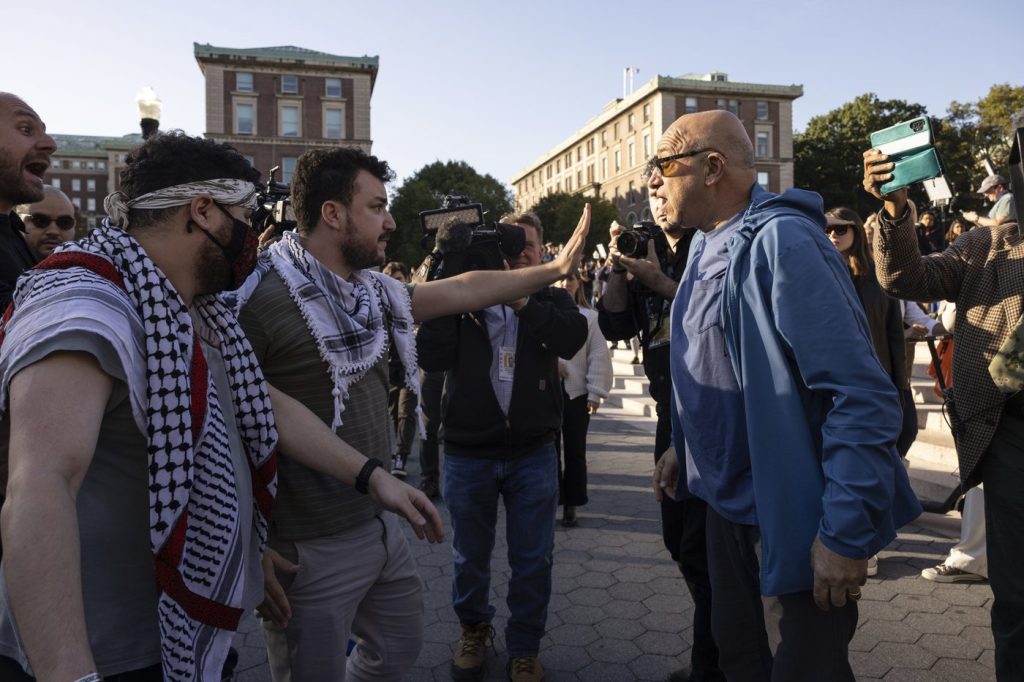NEW YORK (AP) - Mahmoud Khalil, a prominent Palestinian activist and recent graduate of Columbia University, is facing deportation following his arrest by Immigration and Customs Enforcement (ICE) agents. The arrest occurred over the weekend at his university-owned residence, as confirmed by the Department of Homeland Security. Khalil's apprehension is tied to President Donald Trump’s executive orders that target alleged antisemitism, although he has not been charged with any crime.
Khalil’s attorney, Amy Greer, stated that when federal agents executed the arrest, they initially claimed authority under a State Department directive to revoke Khalil’s student visa. However, upon learning that he holds a permanent resident status with a green card, the agents switched their focus to revoking that documentation instead. This has raised concerns regarding the legal grounds for his deportation, particularly given his immigration status.
In a separate incident, ICE agents attempted to detain another international student at Columbia University, although their efforts were thwarted when they were denied entry without a warrant. The Student Workers of Columbia union reported that three agents visited the second student's residence but were turned away, highlighting the contentious nature of the ongoing scrutiny of international students linked to activist movements on campus.
In response to these incidents, Columbia University issued guidance to its students regarding interactions with federal authorities, emphasizing that ICE agents require a judicial warrant or subpoena to access non-public areas, including student housing. This guidance aims to protect student rights amidst escalating tensions surrounding immigration policies and activist protests.
Secretary of State Marco Rubio announced through a social media post that the administration is committed to revoking visas and green cards of individuals identified as Hamas supporters in the U.S., suggesting a broader crackdown on pro-Palestinian activists amid rising tensions surrounding the Israel-Palestine conflict. Khalil’s case appears to be the first notable instance of deportation efforts amid increased scrutiny of students protesting against the war in Gaza.
Despite being vocal in their pro-Palestinian activism, Khalil and other leaders from the Columbia University Apartheid Divest group contend that their actions are part of a larger anti-war movement, which includes support from Jewish students and organizations. Nonetheless, their approach has drawn backlash, particularly from pro-Israel advocates who have urged the Trump administration to act decisively against them.
Khalil is currently detained in an immigration facility in Louisiana after being initially held in New Jersey. His future in the United States remains uncertain, as it is unclear when he will face an immigration court hearing — a critical step in the deportation process. Accompanying this situation is the fact that his wife, an American citizen, is eight months pregnant, adding a significant personal dimension to his legal struggles.
The recent actions of the Trump administration also included pulling $400 million in federal funding from Columbia University, citing a lack of action against antisemitism on the campus. As tensions rise, pro-Israel advocates have increasingly called for official measures against students like Khalil, who represent a growing movement of pro-Palestinian sentiment in American colleges.
Khalil’s activism, which has seen him take a front-row seat in protests and negotiations at Columbia University, illustrates the complex interplay between university activism, immigration policy, and the broader geopolitical issues facing Israel and Palestine today. As this case unfolds, it reflects the increasingly polarized landscape surrounding free speech, academic freedom, and rights for international students in the United States.










